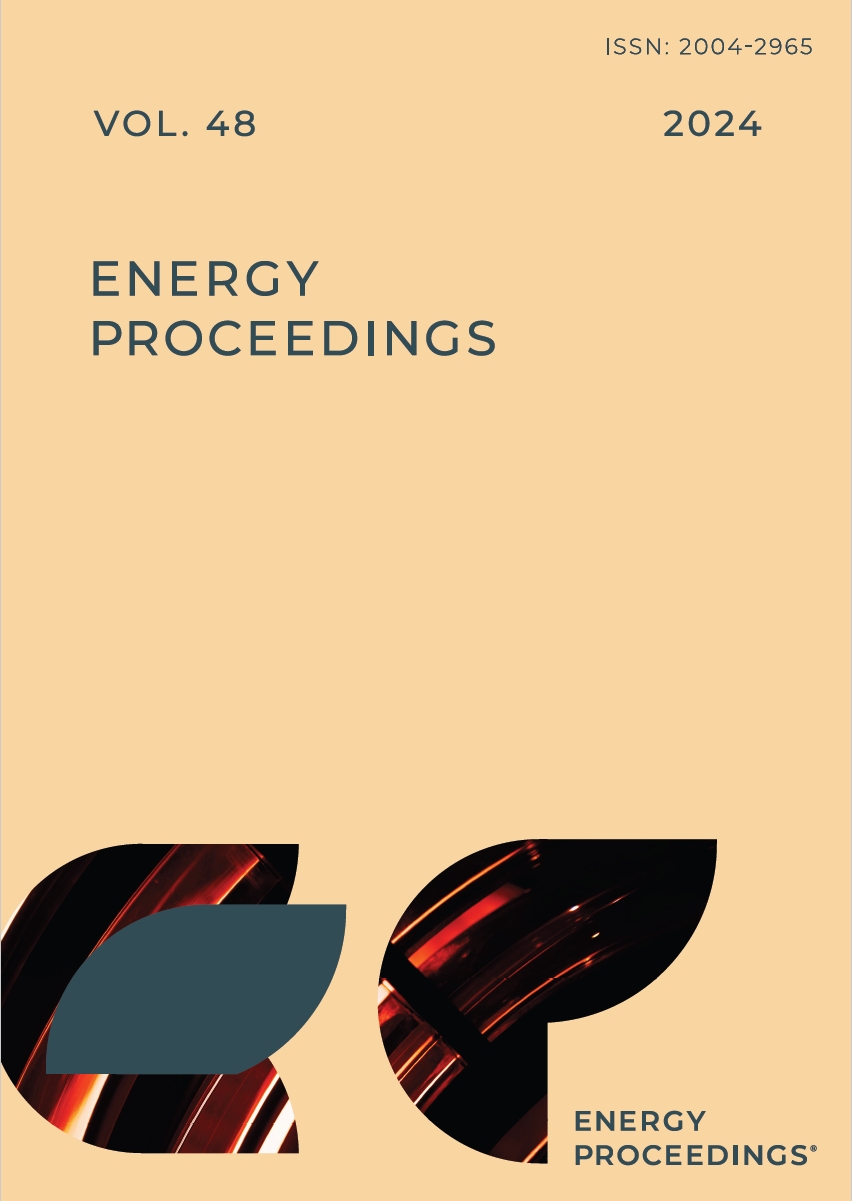
Volume 48
ISSN 2004-2965
A Review of Optimization Models for Battery Sizing in Utility-scale Photovoltaic Power Plants
Mingkun Jiang, Wenqian Zhang, Wenxiao Jiang, Haoran Zhang
Download PDF
Article Preview
Particle Swarm Optimization Based Optimal Sizing Model of PV-Battery Systems for Utility-scale Photovoltaic Power Plants
Mingkun Jiang, Wenqian Zhang, Yuhao Yao, Haoran Zhang
Download PDF
Article Preview
Comparative Thermodynamics Analysis of Geothermal and Air Source Heat Pump for Heating and Cooling – A Case Study in Beijing
Wang Jiachen, Zhang Fan, Ji Dongxu
Download PDF
Article Preview
Ensemble-Tree Model Based on Bayesian Optimization for Solar Energy Generation Prediction in Smart Homes
Oluwatoyosi Bamisile, Dongsheng Cai, Chukwuebuka J. Ejiyi, Chiagoziem C. Ukwuoma, Qi Huang, Olusola Bamisile
Download PDF
Article Preview
Viability and Advantages of Smart Hybrid EV Charging Stations: A Techno-economic Analysis
Wentao Xin , Zhe Yu, Zhenwei Lu, Bin Ye
Download PDF
Article Preview
A Design Workflow Based on Life Cycle Assessment, For a Rammed Earth House in Rural Yunnan
Xingda Guo, Jieming Yan, Shan Dai
Download PDF
Article Preview
Urban Energy System: A Comprehensive Analysis of BIPV-EV coupling
Zhe YU, Zhenwei LU, Wentao XIN, Bin YE
Download PDF
Article Preview
Numerical simulation of collaboratively designed flow channel and gas diffusion layer structures for proton exchange membrane fuel cell
Xiaojian Zhang1, Jiaojiao Song1, Chao Guan1, Yulin Wang
Download PDF
Article Preview
Evaluation of Hyperparameter Optimization in Machine Learning Models for CH4 and H2 Production Prediction based on Supercritical Water Gasification
Chiagoziem C. Ukwuoma, Dongsheng Cai, Mmesoma P. Chukwuemeka, Blessing O. Ayeni, Ibrahim Kunle Adefarati, Huan Yang, Olusola Bamisile, Qi Huang
Download PDF
Article Preview
Mitigating Building Carbon Emissions in High-density Cities: A Case Study of Hong Kong
Xiaoyu Jin, Fu Xiao
Download PDF
Article Preview

Copyright ©
Energy Proceedings

